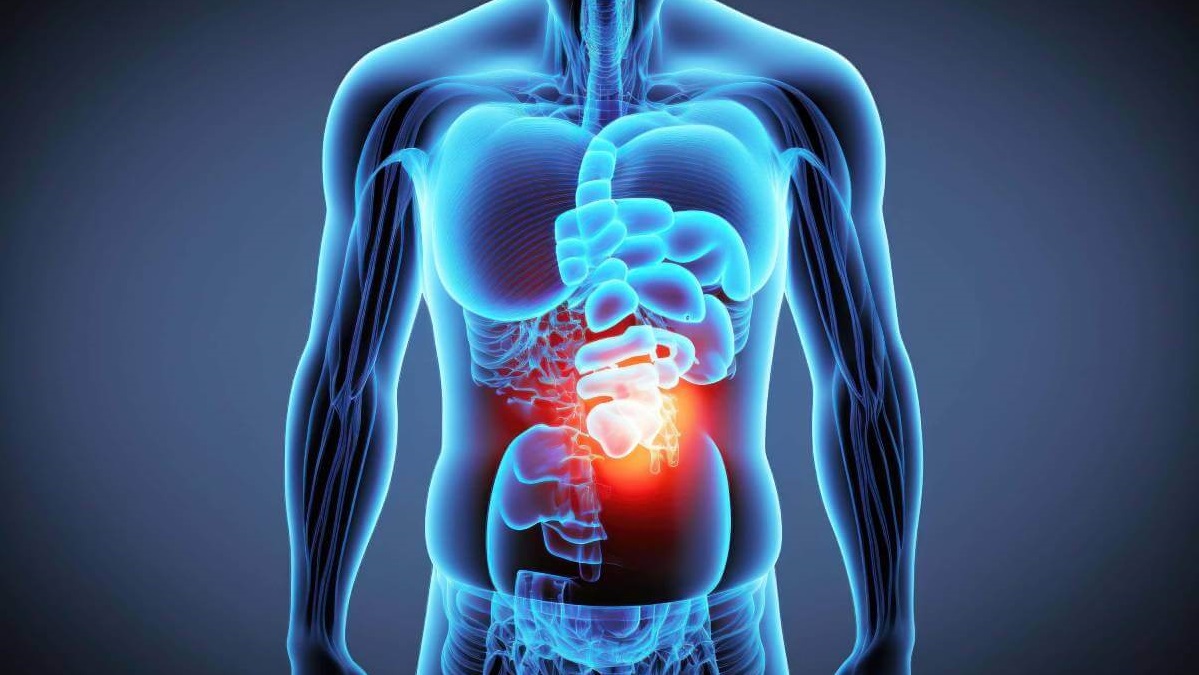We all get stomach ache now and then, and it’s usually a temporary discomfort that’s nothing to worry about.
Some of the most common causes of stomach ache are trapped wind, indigestion, constipation or a tummy bug. But very occasionally, stomach pain can be a sign of something more serious, and you shouldn’t just hope it goes away.
“Stomach aches are very common and can be brought on by a variety of reasons,” says GP Dr Babak Ashrafi. “Like any illness, stomach aches affect people differently but should, in most cases, go away after a few days on their own. If your pain is severe, sudden, or persists over a significant time, this could pinpoint more serious conditions and you should consult your GP.
“Seeking medical advice is also advised if your tummy ache is coupled with other symptoms, such as pain when urinating, abnormal vaginal discharge, or a change in bowel habits.”
A change in bowel habits, as well as stomach pain, can sometimes be linked to bowel cancer. Australia has one of the highest rates of bowel cancer in the world. The lifetime risk of developing bowel cancer before the age of 75 is around one in 19 for men and one in 28 for women. This makes bowel – or colorectal – cancer the third most common cancer in Australia and the second most common cause of cancer death.
“The disease is treatable if diagnosed early, which is why it’s important to be aware of the red flag symptoms to look out for. It really could save your life,” says Genevieve Edwards, chief executive at Bowel Cancer UK.
As well as a pain or lump in the stomach, symptoms of bowel cancer include bleeding from your bottom or blood in your poo, a change in bowel habits, extreme tiredness for no obvious reason, and unexplained weight loss.
“By getting to know the symptoms of bowel cancer and going straight to your GP if you spot any, it’s possible to rule out the disease first and fast,” adds Ms Edwards.
The experts outline stomach problems that should be checked by a doctor.
1. Persistent pain or a lump
Anyone experiencing persistent cramps or pain, or who feels a lump in their tummy, should contact their GP, advises Ms Edwards. “Although a pain or lump here can be a sign of less serious conditions, it’s also a symptom of bowel cancer, so it’s important to speak to your doctor to rule out the disease first and fast,” she stresses.
2. Stomach pain that gets much worse quickly
If you are experiencing sudden and severe pain in your stomach alongside other symptoms, such as abdominal tenderness or hardness, call an ambulance or visit a hospital, advises Dr Ashrafi, who says such pain could be appendicitis. “This typically starts with a pain in the middle of your tummy that can rapidly spread and become increasingly severe,” he says, explaining that other symptoms of appendicitis include vomiting, constipation or diarrhoea, and a high temperature.
View this post on Instagram
3. Tender stomach
If it hurts when you touch your stomach, Dr Ashrafi says this could be related to internal inflammation, including appendicitis, which will need medical attention. “Abdominal tenderness is typically a sign of inflammation or acute processes in one or more organs,” he explains. “Like with all stomach aches, if severe or persistent, seek medical advice, as abdominal tenderness could be a result of things such as appendicitis or an abdominal abscess.”
4. Stomach pain with a change in bowel habits
A change in bowel habits is anything that’s not normal for you, says Ms Edwards, who explains: “This could be looser poos, pooing more often, or constipation that doesn’t clear up. It could also be the feeling that you’ve not finished emptying your bowels.”
She says keeping track of any bowel changes in a journal can help you describe them to a doctor.
5. Persistent bloating
Bloating that you can’t seem to get rid of also needs checking out by a doctor. “Bloating is typically linked to gut health and digestion,” explains Dr Ashrafi. “Too much gas in your gut from your diet, IBS (irritable bowel syndrome) or underlying food intolerance is a common cause of persistent bloating.
“However, other illnesses, such as ovarian disease in women, can also make you feel bloated. If yours lasts for more than three weeks, keeps coming back or you have a lump in your stomach, you should seek medical advice.”
Did you know the symptoms of bowel cancer? Why not share your thoughts in the comments section below?
Also read: Successful trial could revolutionise bowel cancer treatment
– With PA
Disclaimer: This article contains general information about health issues and is not advice. For health advice, consult your medical practitioner.

